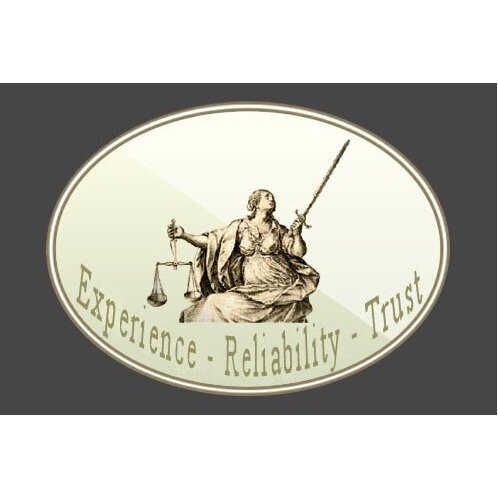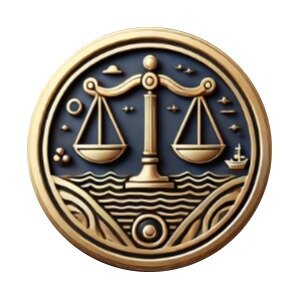ทนายความ ธนาคารและการเงิน ที่ดีที่สุดใน พัทยา
แบ่งปันความต้องการของคุณกับเรา รับการติดต่อจากสำนักงานกฎหมาย
ฟรี ใช้เวลา 2 นาที
รายชื่อทนายความที่ดีที่สุดใน พัทยา, ประเทศไทย
1. เกี่ยวกับกฎหมายธนาคารและการเงินในพัทยา, ประเทศไทย
กฎหมายธนาคารและการเงินไทยมี BOT เป็นผู้กำกับดูแลหลัก โดยใช้กฎระเบียบที่ครอบคลุมสถาบันการเงินและการให้สินเชื่อ
กรอบกฎหมายหลักรวมถึงพระราชบัญญัติธนาคารแห่งประเทศไทย พระราชบัญญัติธุรกิจสถาบันการเงิน และประมวลกฎหมายแพ่งและพาณิชย์ที่เกี่ยวข้องกับสัญญาเงินกู้และจำนอง
ในพัทยา ซึ่งเป็นเมืองท่องเที่ยวและพื้นที่พัฒนาอสังหาริมทรัพย์ การทำสัญญาเงินกู้และการจำนองต้องสอดคล้องกับกฎหมายแรงงาน ภาษี และข้อกำหนดการใช้ที่ดินในประเทศไทย
หากต้องการคำปรึกษาใช้งานจริง ผู้มีถิ่นพัทยาควรคบหาทนายความที่มีประสบการณ์ด้านธนาคารและการเงินในพื้นที่นี้
2. ทำไมคุณอาจต้องการทนายความ
-
กรณีซื้ออสังหาริมทรัพย์ในพัทยาและขอสินเชื่อจากธนาคาร ทนายช่วยตรวจสอบเงื่อนไขเงินกู้ ดอกเบี้ย ค่าธรรมเนียม และความถูกต้องของสัญญาจำนองที่ดินหรือคอนโดในพัทยา
-
กรณีเป็นชาวต่างชาติที่มีอสังหาริมทรัพย์ในพัทยา ต้องวางโครงสร้างการถือครองและเงินทุนให้ถูกกฎหมาย เช่น โครงสร้างบริษัทไทยหรือสัญญาเช่าพื้นที่
-
กรณีถูกเรียกเก็บหนี้หรือถูกติดตามทวงหนี้โดยเจ้าหนี้ในพัทยา ทนายช่วยตรวจสอบสัญญา ตรวจสอบอัตราดอกเบี้ย และยืนคำร้องต่อศาลเพื่อคุ้มครองสิทธิ
-
กรณีเงินกู้นอกระบบหรือเงินกู้ที่ได้รับอนุญาตอย่างไม่ชอบด้วยกฎหมาย ทนายช่วยแยกแยะความถูกต้องตามกฎหมาย และช่วยฟ้องร้องหากจำเป็น
-
กรณีรีไฟแนนซ์หรือโอนหนี้ระหว่างธนาคารในพัทยา ทนายช่วยตรวจสอบเอกสารและข้อกำหนดใหม่ เพื่อหลีกเลี่ยงข้อพิพาทในภายหลัง
-
กรณีประเด็นข้อมูลส่วนบุคคลที่ธนาคารถือไว้ ทนายจะช่วยเรียกร้องสิทธิในการเข้าถึง แก้ไข หรือลบข้อมูลส่วนบุคคลตามกฎหมาย PDPA
3. ภาพรวมกฎหมายท้องถิ่น
กฎหมายธนาคารและการเงินในประเทศไทยมีการบังคับใช้อย่างสม่ำเสมอในพัทยา เนื้อหาสอดคล้องกับกฎหมายระดับชาติที่ BOT กำกับ
สองสามแนวทางที่เกี่ยวข้อง ได้แก่ Bank of Thailand Act ซึ่งกำกับธนาคารและสถาบันการเงิน, Financial Institution Business Act ที่ควบคุมการขออนุญาตประกอบธุรกิจและการดำเนินงาน, และ ประมวลกฎหมายแพ่งและพาณิชย์ ที่เกี่ยวข้องกับสัญญากู้เงินและจำนอง
การใช้งานข้อมูลส่วนบุคคลในธนาคารและการวิธีการเก็บข้อมูลมีกรอบตาม พระราชบัญญัติคุ้มครองข้อมูลส่วนบุคคล ที่ใช้อยู่ทั่วประเทศ
สำหรับผู้ที่อาศัยในพัทยา ควรติดตามข่าวจากหน่วยงานราชการเพื่อทราบประกาศ หรือการปรับปรุงที่มีผลต่อการทำธุรกรรมทางการเงิน
แหล่งข้อมูลอ้างอิง: Bank of Thailand (BOT), ราชกิจจานุเบกษา, เทศบาลเมืองพัทยา
4. คำถามที่พบบ่อย
อะไรคือความแตกต่างระหว่างสถาบันการเงินที่ได้รับใบอนุญาตกับนายหน้าเงินกู้ที่ไม่มีใบอนุญาตในพัทยา?
สถาบันการเงินที่ได้รับอนุญาตจาก BOT ต้องปฏิบัติตามกฎระเบียบและตรวจสอบได้ ส่วนนายหน้าเงินกู้ที่ไม่มีใบอนุญาตอาจละเมิดกฎหมาย ทำให้เสี่ยงถูกฟ้องและถูกยึดทรัพย์ได้ง่าย
อย่างไรจึงจะหาทนายความด้านธนาคารและการเงินในพัทยาที่เชี่ยวชาญ?
ค้นหาจากสมาคมทนายความในพื้นที่ ตรวจสอบประสบการณ์ในกรณีธนาคารและอสังหาริมทรัพย์ และขอคำปรึกษาเบื้องต้นฟรี จากนั้นเปรียบเทียบค่าใช้จ่ายและแนวทางการดำเนินคดี
เมื่อไหร่ควรเรียกร้องคำปรึกษาจากทนายเกี่ยวกับการถือครองอสังหาฯ โดยชาวต่างชาติในพัทยา?
เมื่อคุณวางแผนซื้ออสังหาฯ ในพัทยา หรือเริ่มเจรจาสินเชื่อ ควรปรึกษาทนายทันทีเพื่อวางโครงสร้างให้ถูกกฎหมายและลดความเสี่ยงในการถือครอง
ที่ไหนควรตรวจสอบข้อกำหนดเงินกู้ก่อนเซ็นสัญญาในพัทยา?
ตรวจสอบที่สัญญากู้กับธนาคารผู้ให้บริการในพัทยา พร้อมทั้งอ่านเงื่อนไขค่าธรรมเนียม ดอกเบี้ย และเงื่อนไขการชำระหนี้ให้ละเอียด
ทำไมการรีไฟแนนซ์ในพัทยาถึงซับซ้อนมากกว่าบางพื้นที่?
ต้องตรวจสอบเงื่อนไขใหม่ ความเสี่ยงด้านอัตราดอกเบี้ย และการเปลี่ยนแปลงสถานะทรัพย์สิน โดยเฉพาะหากทรัพย์สินอยู่ในพื้นที่ท่องเที่ยวและมีข้อจำกัดการถือครอง
ฉันสามารถเรียกร้องค่าสินไหมจากธนาคารได้หรือไม่ หากมีค่าธรรมเนียมไม่ชัดเจน?
สามารถเรียกร้องและฟ้องร้องหากธนาคารเรียกเก็บค่าธรรมเนียมไม่โปร่งใส หรือไม่แจ้งให้ทราบตามข้อตกลงที่ทำไว้
ระยะเวลาการดำเนินคดีธนาคารและการเงินทั่วไปในพัทยาใช้เวลานานแค่ไหน?
โดยทั่วไปคดีจำนองและหนี้สินอาจใช้เวลาประมาณ 6-12 เดือน ขึ้นกับความซับซ้อนและการไกล่เกลี่ยก่อนถึงศาล
ฉันต้องเตรียมเอกสารอะไรบ้างเมื่อพบทนายในพัทยา?
เตรียมบัตรประจำตัว บัญชีธนาคาร สัญญากู้สินเชื่อ ใบเสร็จและหลักฐานชำระหนี้ เอกสารอสังหาริมทรัพย์ และคำสั่งศาลที่เกี่ยวข้อง
ความแตกต่างระหว่างการรีไฟแนนซ์กับการโอนหนี้ข้ามประเทศคืออะไร?
รีไฟแนนซ์คือเปลี่ยนเงื่อนไขกับธนาคารเดิมเพื่อดอกเบี้ยหรือเงื่อนไขที่ดีกว่า การโอนหนี้ข้ามประเทศเกี่ยวข้องกับภาษีและข้อกำหนดระหว่างประเทศซึ่งต้องปรึกษาทนายชำนาญ
อะไรคือขั้นตอนตรวจสอบสัญญากู้ในพัทยาก่อนเซ็น?
ตรวจสอบอัตราดอกเบี้ย ค่าธรรมเนียม เงื่อนไขการชำระคืน และบทลงโทษ หากไม่ชัดเจน ให้ขอคำอธิบายเป็นลายลักษณ์อักษรจากธนาคาร
ทนายสามารถช่วยในการเจรจาเงื่อนไขเงินกู้ก่อนเซ็นสัญญาได้อย่างไร?
ทนายช่วยร่างข้อเสนอแก้ไข ตีกรอบเงื่อนไขสำคัญ และต่อรองค่าธรรมเนียมหรือเงื่อนไขการชำระเงิน เพื่อป้องกันข้อพิพาทในอนาคต
ถ้าธนาคารปฏิบัติผิดสัญญา หรือเรียกเก็บค่าธรรมเนียมไม่ถูกต้อง ฉันควรทำอย่างไรในพัทยา?
ปรึกษาทนายเพื่อประเมินทางเลือกทางกฎหมาย เช่น การยื่นคำร้องฟ้องหรือการไกล่เกลี่ย และสามารถร้องเรียนต่อ BOT หรือหน่วยงานที่เกี่ยวข้องได้
5. ทรัพยากรเพิ่มเติม
การศึกษาข้อมูลเพิ่มเติมควรมาจากแหล่งภาครัฐที่เชื่อถือได้ เช่น
- Bank of Thailand - แหล่งข้อมูลเกี่ยวกับการกำกับดูแล ธนาคาร และการคุ้มครองผู้บริโภค: https://www.bot.or.th
- Pattaya City Municipality - ข่าวสารและประกาศท้องถิ่นเกี่ยวกับการประกอบธุรกิจและอสังหาริมทรัพย์ในพื้นที่พัทยา: https://www.pattaya.go.th
- ราชกิจจานุเบกษา - แหล่งประกาศพระราชบัญญัติและกฎหมายที่เกี่ยวข้อง: https://www.ratchakitcha.soc.go.th
6. ขั้นตอนถัดไป
- ประเมินสถานการณ์ทางการเงินและเป้าหมายในพัทยาเวลา 1-2 สัปดาห์
- ค้นหาทนายความด้านธนาคารและการเงินที่มีประสบการณ์ในพัทยา โดยสอบถามกรณีศึกษาและการติดตามผล 1-2 สัปดาห์
- นัดปรึกษาเบื้องต้น ตรวจสอบใบอนุญาตและความเชี่ยวชาญ พร้อมขอประมาณค่าใช้จ่ายแบบเป็นลายลักษณ์อักษร 1 สัปดาห์
- เตรียมเอกสารทั้งหมด เช่น สัญญากู้ โฉนด บัญชี และคำสั่งศาลที่เกี่ยวข้อง
- ให้ทนายตรวจสอบสัญญา แนะนำแก้ไขเงื่อนไขและเปรียบเทียบข้อเสนอจากธนาคารอย่างเป็นระบบ 1-3 สัปดาห์
- ดำเนินการเจรจาเงื่อนไขกับธนาคารและยืนยันข้อสรุปเป็นลายลักษณ์อักษร
- ติดตามกระบวนการและปรับแผนการเงินตามคำแนะนำของทนายอย่างต่อเนื่อง
Lawzana ช่วยคุณค้นหาทนายความและสำนักงานกฎหมายที่ดีที่สุด ใน พัทยา ผ่านรายชื่อผู้เชี่ยวชาญด้านกฎหมายที่มีคุณสมบัติเหมาะสมที่คัดสรรและตรวจสอบล่วงหน้า แพลตฟอร์มของเรานำเสนอการจัดอันดับและโปรไฟล์โดยละเอียดของทนายความและสำนักงานกฎหมาย ช่วยให้คุณเปรียบเทียบตามสาขากฎหมาย รวมถึง ธนาคารและการเงิน ประสบการณ์ และความคิดเห็นของลูกค้า
แต่ละโปรไฟล์ประกอบด้วยคำอธิบายเกี่ยวกับสาขากฎหมายของสำนักงาน รีวิวจากลูกค้า สมาชิกในทีมและหุ้นส่วน ปีที่ก่อตั้ง ภาษาที่พูด ที่ตั้งสำนักงาน ข้อมูลการติดต่อ การมีตัวตนบนโซเชียลมีเดีย และบทความหรือแหล่งข้อมูลที่เผยแพร่ สำนักงานส่วนใหญ่บนแพลตฟอร์มของเราพูดภาษาอังกฤษและมีประสบการณ์ทั้งในเรื่องกฎหมายท้องถิ่นและระหว่างประเทศ
ขอใบเสนอราคาจากสำนักงานกฎหมายชั้นนำ ใน พัทยา, ประเทศไทย — รวดเร็ว ปลอดภัย และไม่ยุ่งยาก
ข้อจำกัดความรับผิดชอบ:
ข้อมูลที่ให้ไว้ในหน้านี้มีวัตถุประสงค์เพื่อเป็นข้อมูลทั่วไปเท่านั้นและไม่ถือเป็นคำแนะนำทางกฎหมาย แม้ว่าเราจะพยายามตรวจสอบความถูกต้องและความเกี่ยวข้องของเนื้อหา แต่ข้อมูลทางกฎหมายอาจเปลี่ยนแปลงได้ตามกาลเวลา และการตีความกฎหมายอาจแตกต่างกันไป คุณควรปรึกษาผู้เชี่ยวชาญด้านกฎหมายที่มีคุณสมบัติเหมาะสมเพื่อขอคำแนะนำเฉพาะสำหรับสถานการณ์ของคุณเสมอ
เราปฏิเสธความรับผิดทั้งหมดสำหรับการกระทำที่ทำหรือไม่ทำตามเนื้อหาในหน้านี้ หากคุณเชื่อว่าข้อมูลใดไม่ถูกต้องหรือล้าสมัย โปรด contact us และเราจะตรวจสอบและแก้ไขตามความเหมาะสม
เรียกดูสำนักงานกฎหมาย ธนาคารและการเงิน ตามบริการ ใน พัทยา, ประเทศไทย
ทนายความ พัทยา, ประเทศไทย ในสาขากฎหมายที่เกี่ยวข้อง















